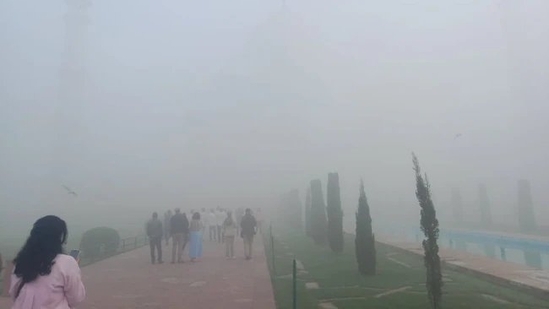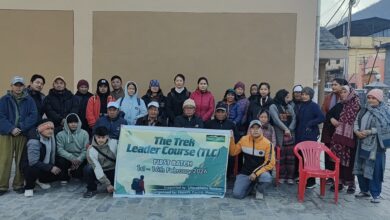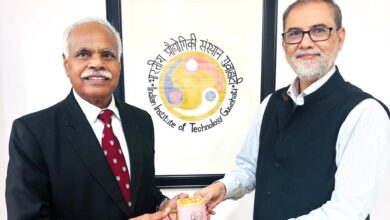Earth Day 2025: Agra’s Environmental Crisis Signals Urgent Need for Action

Earth Day 2025: Agra’s Environmental Crisis Signals Urgent Need for Action
By Brij Khandelwal
Agra, April 22
On Earth Day, Agra environmentalists and river activists issued a stark warning about the city’s deteriorating environmental conditions, reflecting a broader global crisis. The alarm bells ringing in Agra, home to the iconic Taj Mahal, underscore the urgent need for remedial measures to save Planet Earth from the escalating threats of climate change, pollution, and unsustainable development.
The city’s struggle with air and water pollution, dying rivers, and shrinking green cover serves as a microcosm of the challenges facing the planet, demanding immediate action to restore balance and ensure a sustainable future.
Agra’s environmental woes are glaring. The Yamuna River, the city’s lifeline, is critically ill, reduced to a near-dead trickle. Its dry riverbed, combined with desert sand and silt, chokes the air, worsened by emissions from a surging number of vehicles. Despite decades of investment—hundreds of crores spent to protect Agra’s heritage monuments—the city grapples with rising pollution levels. Air quality data from the Taj Trapezium Zone reveals alarming trends: suspended particulate matter (SPM) far exceeds the permissible limit of 100 micrograms per cubic meter, while sulfur dioxide and nitrogen dioxide levels continue to climb. This toxic air not only endangers public health but also threatens the Taj Mahal, a 17th-century marvel increasingly shrouded in dust and smog.
The diminishing green cover around Agra further exacerbates these issues, weakening the city’s natural defenses against pollution and climate impacts.
Uncontrolled industrialization and chaotic urbanization lie at the heart of Agra’s environmental decline. Profit-driven development has degraded the quality of life, with municipal authority paving over permeable surfaces using cement tiles and concrete, preventing rainwater from seeping into the ground. This impedes groundwater recharge, worsening water scarcity in a city already struggling to conserve its rapidly depleting resources.
Members of the River Connect Campaign, emphasized the need to restore harmony among nature’s five elements (panch-tattva)—earth, water, fire, air, and space. Activists called for reduced consumption, widespread recycling, and a rejection of the wasteful “use and throw” culture. They advocated for mandatory water harvesting in urban areas and urged political leaders to prioritize policies that align with nature’s rhythms.
The consequences of inaction are dire, not just for Agra but for the planet. Rising vehicle numbers and industrial emissions are driving global warming, with Agra’s pollution levels mirroring trends in cities worldwide. Climate change is intensifying extreme weather, depleting water resources, and threatening ecosystems. The Yamuna’s plight reflects the fate of rivers globally, choked by pollution and over-extraction. The Taj Mahal’s vulnerability to dust and smog highlights how even humanity’s greatest cultural treasures are at risk. International agencies have raised concerns, yet tangible action remains elusive. If left unchecked, these trends will lead to irreversible damage—uninhabitable cities, collapsing ecosystems, and a planet unable to sustain future generations.
Remedial measures are non-negotiable. First, governments and municipalities must enforce stricter regulations on industrial emissions and vehicle numbers, promoting cleaner technologies and public transport. Second, urban planning must prioritize green spaces and permeable surfaces to support groundwater recharge and reduce urban heat. Third, water conservation—through harvesting and judicious use—must become a societal norm, with every drop preserved for future needs. Finally, individuals must adopt sustainable practices, reducing waste and embracing recycling. Agra’s Earth Day celebrations underscored a universal truth: saving the planet requires collective action, from policy reforms to personal responsibility. By acting now, we can restore balance, protect our heritage, and secure a livable Earth for generations to come.
(Brij Khandelwal is a senior journalist based at Agra)






